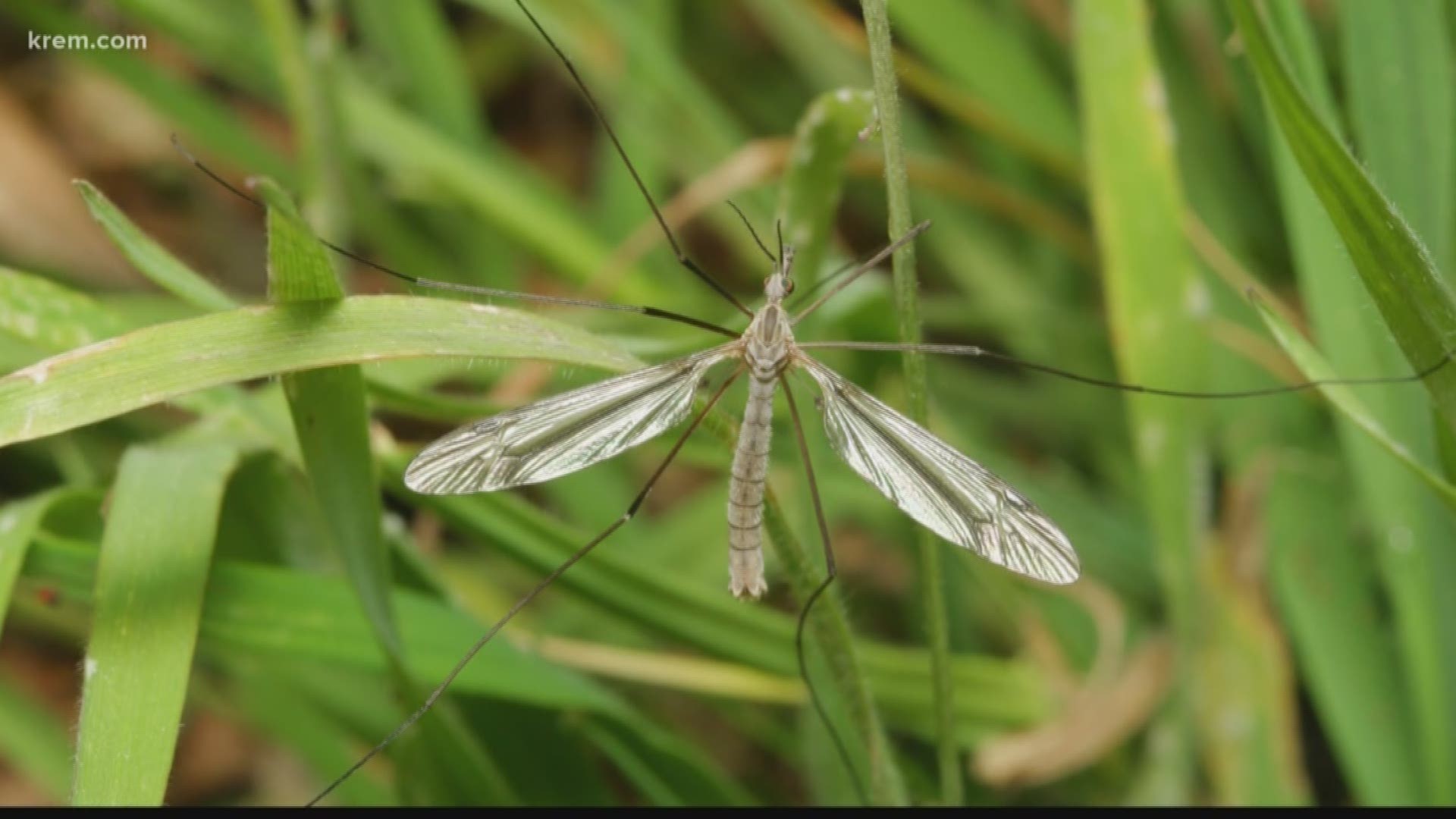SPOKANE, Wash — Crane flies look like large mosquitoes, but they aren’t trying to bite you. Instead, they’re going after your grass.
There are more than 1,200 crane fly species in the Inland Northwest alone, according to Scott Mitchell with the Western Exterminator Company.
Also known as “mosquito eaters,” crane flies are often misunderstood. Raymond VanderLouw with Eden Pest Control said mosquitoes aren’t a part of the flies’ meal plan.
“(People) think they’re a mosquito hawk or that they eat mosquitoes,” VanderLouw said. “There’s all kinds of misnomers about them.”
He said they’re mainly focused on getting to the roots of your grass.
“Crane flies truly are a seasonal pest, so we’re going to start seeing the adults later on in the summer,” he said.
Springtime is when they’re most active, but they lay their eggs in the fall. Those eggs then mature and develop into larvae.
By the spring, those larvae are ready to eat.
“They kind of shake off winter, just like any other insect is doing right now, and then they’re actively feeding on the lawn,” VanderLouw said.
Crane flies like shaded or moist areas, but they can also feed in the roots of plants.
“They could potentially live out an entire life cycle in a lawn, so if you’ve had a problem with them in the past, chances are you’ll have a problem with them in the future,” VanderLouw said.
He said the only real way to get rid of them is to treat your lawn just like you would with any other pest.
But he said there is something you can do to help prevent the flies from laying eggs in your lawn.
“Make sure you’re checking your moisture content, shaded areas and that you’re not having too wet of an area. Your sprinklers, too. Overwatering can create a very moist environment, which is what they like,” he said.
If you suspect that you have a problem with crane flies, VanderLouw says to look for short patches of grass around your yard.
“You’ll see uneven growing in the grass,” he said. “That could be a potential sign. If the infestation gets big enough, you could even have patches in the grass that aren’t coming up.”
He said pest control companies should be able to treat the grass with some of the same sprays they use for other yard pests.

